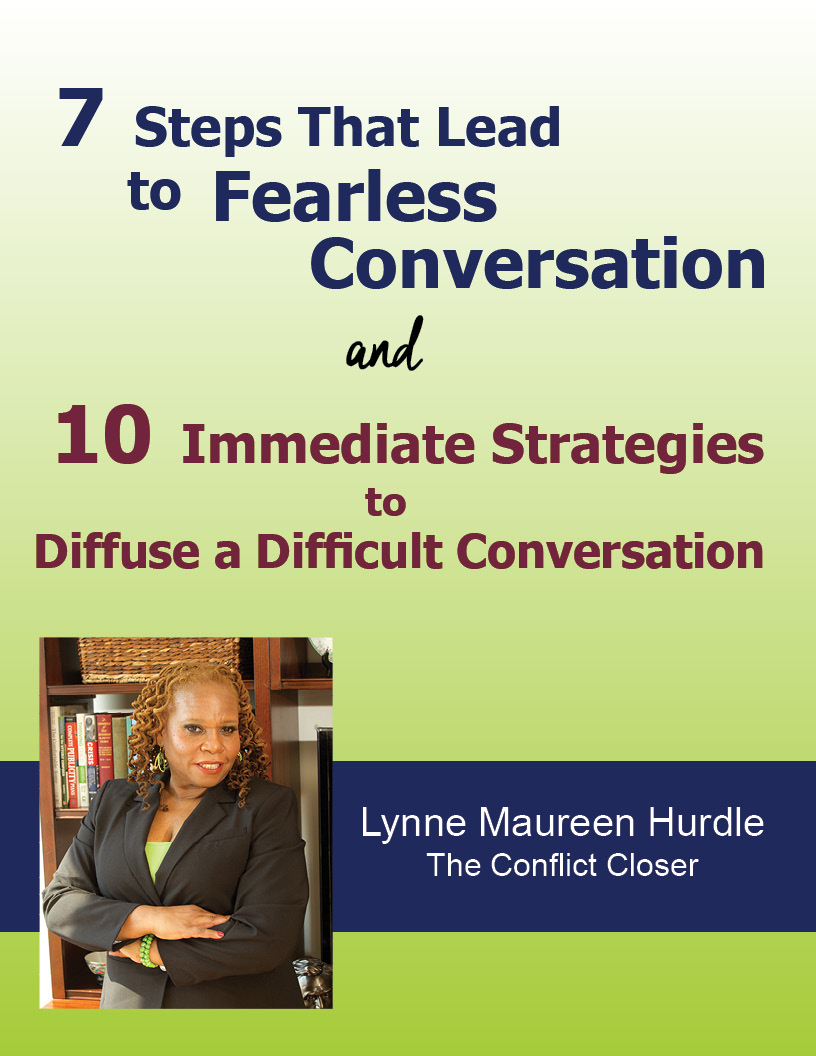Five Things You Can Do to Become More Peaceful, Productive and Promotable
The word disagreement often conjures up negative images for most of us. If we are to measure ourselves by the media’s standards, we disagree more than we agree. We are fed seemingly endless examples of conflicts escalating into name-calling and screaming matches only to be followed up by praise for the ultimate clapback.
Our political discourse has dissolved into the lobbing of verbal grenades meant not just to attack, but to annihilate those who disagree. Social media has become the weapon of choice for even the most timid among us when it comes to attacking someone who disagrees with us. Who can resist retweeting a nasty comeback or posting a snappy GIF to get our point across when someone clearly cannot see how right we are?
The cost of all of this to our personal relationships is pretty high, but the cost is even higher for businesses. Many of the latest headlines and videos have featured employees of major companies responding inappropriately to customers who engaged in some kind of disagreement with them. These employees were ultimately fired. Those that remain in an unhappy work environment are an even bigger threat.
Disagreement is a natural part of discourse. We all have different perspectives and as a result, we often do not see eye to eye on everything. However these disagreements are creating tense work climates, difficulty in forming relationships and working in teams, and low morale leading to decreased productivity and profits.
Since most people avoid or become frustrated by disagreements, knowing how to talk to people who disagree with you can definitely put you ahead of the game and make people take notice.
If you want to be that person, here are five things you can do:
ONE: Become a Master Listener
Most people listen up until the point at which they wish to interrupt and that usually comes early in the conversation, especially if it is someone who disagrees with them often. Master listeners know that they have to hang in there in order to find out what point the speaker is actually making rather than assume they know what the speaker is going to say. They are listening for places where the other person disagrees and the specifics of why they disagree.
TWO: Engage in Strategic Listening
What most people fail to realize is when the person disagreeing doesn’t seem to want to agree with any of your points, it is often because they feel unheard. This is where strategic listening really helps to narrow things down.
To do that, you need to listen for four things. Listen for what the issue is, what their feelings are, what they value and lastly, reflect those things back to them in a couple of statements.
Something like “what I am hearing is you think your idea will provide better service and this is important to you because you value excellent customer service. You are also frustrated because you don’t feel that I have considered your idea.” The fourth thing you are listening for is positions or statements that sound like threats or ultimatums. Listen past these rather than derail the conversation by taking them on. In most cases, if you use the paraphrase statements to let them know that you have heard the first three things, there will be no need for them to posture with positional statements.
THREE: Respond Rather than React
Some of the most common reactions to someone disagreeing with us are annoyance, irritation and taking offense. Whether we like it or not, we often have a physiological response before we have a verbal one. Heat rises in the back of our neck, our stomach gets tight, our heart races or our palms get sweaty. If we are unable to get or keep ourselves calm, we are likely to react when we really need to respond. Breathing deeply while masterfully and strategically listening, sets us up to respond to their points rather than reacting to the fact that they disagreed or the way they may have chosen to do it.
FOUR: Be Objective About Your Response
Objectivity goes a long way in disagreements. Be open to looking at your reasons for rejecting their ideas. Are you stuck on the way things are always done? Do you dislike the person and therefore reject their ideas? Are you unfamiliar with their suggestion and hesitant to take a chance? Asking yourself objective questions about what this disagreement means to you, can help you see the places you might be willing to agree. After you have looked at yourself and this disagreement objectively, let them know that they have added value to your way of thinking.
FIVE: Invite Them to Problem-Solve
Explain your point further and invite them to problem-solve. Check to see if they understand you fully. Ask clarifying questions about their points. Identify places where you agree. Offer the chance for both of you to look at it differently and come up with more possibilities. Brainstorm solutions.
Once the conversation concludes, be committed to not talking badly about them or holding a grudge. Handling disagreements effectively produces confidence, better relationships and real inner peace giving you more time and energy to produce at your highest level. Most businesses are looking to reward people who can bring that kind of value to their company.
In Love,
Dr. Lynne






Excellent post. I watched a video today of Dr. Mark Hyman interviewing Dr. Jeffrey Bland, founder of the Institute for Functional Medicine. When we are exposed to new information that is foreign to what we know or believe, Dr. Bland suggested that instead of disregarding or dismissing it, we think, “That doesn’t sound like anything I know, but maybe I’ll look into it.” This way we might learn something valuable that we didn’t know before.
I would like to see this in action. A hypothetical dialog? I tend to deal with Passive-aggressive behavior in the workplace, where people in authority will make snide comments or assumptions about others, or hold a grudge. How do I stay out of that type of conversation and create more positivity, while respecting authority?